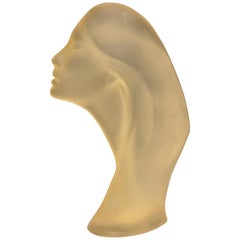David Fisher Lucite Stargazer
Recent Sales
David Fisher 1962 Stargazer Mate Lucite Sculpture Bust Art Deco Woman
By Austin Productions
Located in San Diego, CA
Beautiful Lucite sculpture by David Fisher in frosted finish, circa 1962 unsigned I believe it’s
Category
20th Century American Art Deco Figurative Sculptures
Materials
Lucite
Get Updated with New Arrivals
Save "David Fisher Lucite Stargazer", and we’ll notify you when there are new listings in this category.
More Ways To Browse
Austin Art Deco
Austin Sculpture Art Deco
David Fisher Bust
David Fisher Stargazer
Stargazer Sculpture
Royal Haeger Brown Vase
Royal Vienna Covered Urn
Royal Vienna Cup And Saucer
Royal Worcester Cabinet Plates
Royal Worcester Dessert
Royale Living Vintage Furniture
Roycroft Copper Vase
Royere Gouffe
Ruby Red Glass Pitcher
Russell Woodard Plant Stand
Russian Carved Animal
Russian Cast Iron
Russian Cup Saucer
